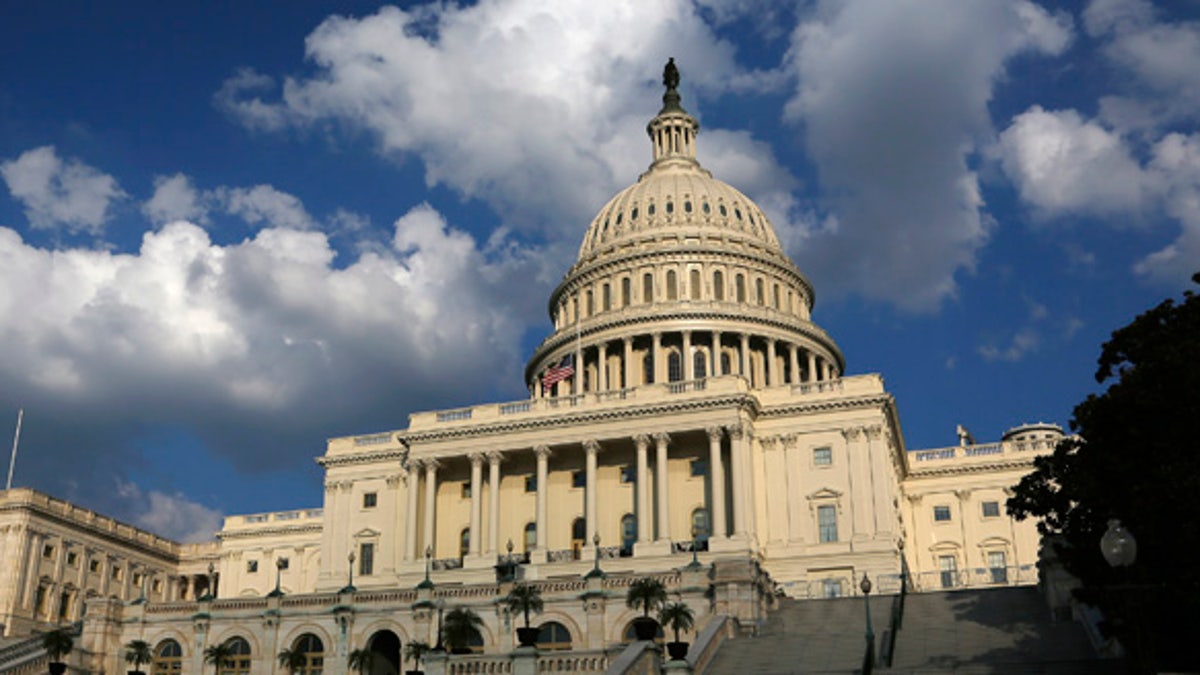
New legislation could repeal the current authority of the National Labor Relations Board. (Reuters)
The U.S. economy has endured eleven recessions since World War II – and in each case jobs and wages bounced back quickly.
Not this time. America’s current “recovery” features the weakest wage growth of any economic rebound – with data from the U.S. Bureau of Labor Statistics (BLS) showing real compensation per hour increasing by only 0.5 percent since 2009.
[pullquote]
By comparison, the average compensation increase at this point in previous recoveries clocked in at a whopping 9.2 percent – more than eighteen times higher. Meanwhile a new study by the Chicago Fed reveals real wages should be at least 3.6 percentage points higher than they are based on prevailing labor market conditions.
What’s happening out there? Why is the latest economic downturn proving so hard to shake?
As we pause this Labor Day to honor the indispensability of American workers – and the essential roles they play in advancing our economy and national fabric – we must also honestly examine the forces currently holding them back. And that starts with a basic acknowledgement that the sweat of our brows is producing diminishing returns – both for ourselves and our families.
Barack Obama’s vow to create a “rising, thriving” middle class has instead produced stagnant incomes, a weak consumer economy and a surge in government dependency – all while his overbearing executive branch actively works against the best interests of American laborers. And no agency has been more instrumental in this assault on American productivity than the National Labor Relations Board (NLRB) – which was recently at the heart of a major constitutional crisis.
Obama’s NLRB has been waging war on the American free market for years – launching an indiscriminate vendetta against companies large and small. In an effort to facilitate expanded unionization, the agency has sought to regulate all manner of corporate decisions– ranging from where businesses can relocate to what they can post on their social media accounts.
The thuggish, overbearing tactics have worked, too. Aircraft manufacturer Boeing – which was sued by the NLRB for opening a facility in the right-to-work state of South Carolina – has since decided to steer the vast majority of its new business back to a unionized facility in Washington State rather than deal with Big Labor’s taxpayer-subsidized bully.
In fact after years of steady private sector unionization declines, Big Labor’s bleeding stopped in 2013 thanks in no small part to the aggressiveness of Obama’s NLRB.
But Obama took it a step too far – illegally installing three NLRB members during a so-called “Senate recess” in January 2012. The Supreme Court unanimously struck down this unconstitutional overreach earlier this year – calling into question more than 400 decisions reached by this illegally appointed board.
Has this ruling caused Obama’s NLRB to think twice? Of course not.
Earlier this summer the agency launched a new war against franchise based businesses like restaurants and convenience stores – endeavoring to hold parent corporations (and their tens of thousands of franchisees) responsible for employment decisions made at individual locations. Such a groundless expansion of liability goes against decades of established law governing franchise operations – opening the floodgates to waves of litigation that could cripple an industry employing more than 8 million Americans.
“The best thing for workers is a profitable, growing sector built on a proven system,” The Chicago Tribune editorialized. “If that system falls by the wayside, a lot of (union) jobs will go with it.”
Obama and the NLRB don’t care about lost jobs, though. As we saw during the debate over the minimum wage, they care only about the preservation of political power. This is why specific steps must be taken sooner rather than later to rein in the NLRB – before it does even more damage to our economy.
Last year, Rep. Austin Scott reintroduced his Protecting American Jobs Act – legislation aimed at confining the NLRB to investigating allegations of unfair labor practices. Scott’s bill – which has more than fifty co-sponsors – would “repeal the authority of the General Counsel of the National Labor Relations Board to issue, and prosecute complaints” regarding labor practices. It would also expressly ban the board from “promulgating rules that affect the substantive rights of a person, employer, employee or labor organization.”
In other words the authority to adjudicate labor issues would be placed back where it belongs – in the American court system.
Workers need more, better-paying employment options if our economy is ever going to truly rebound. But those options are never going to materialize as long as Obama's NLRB is fighting them at every turn.
